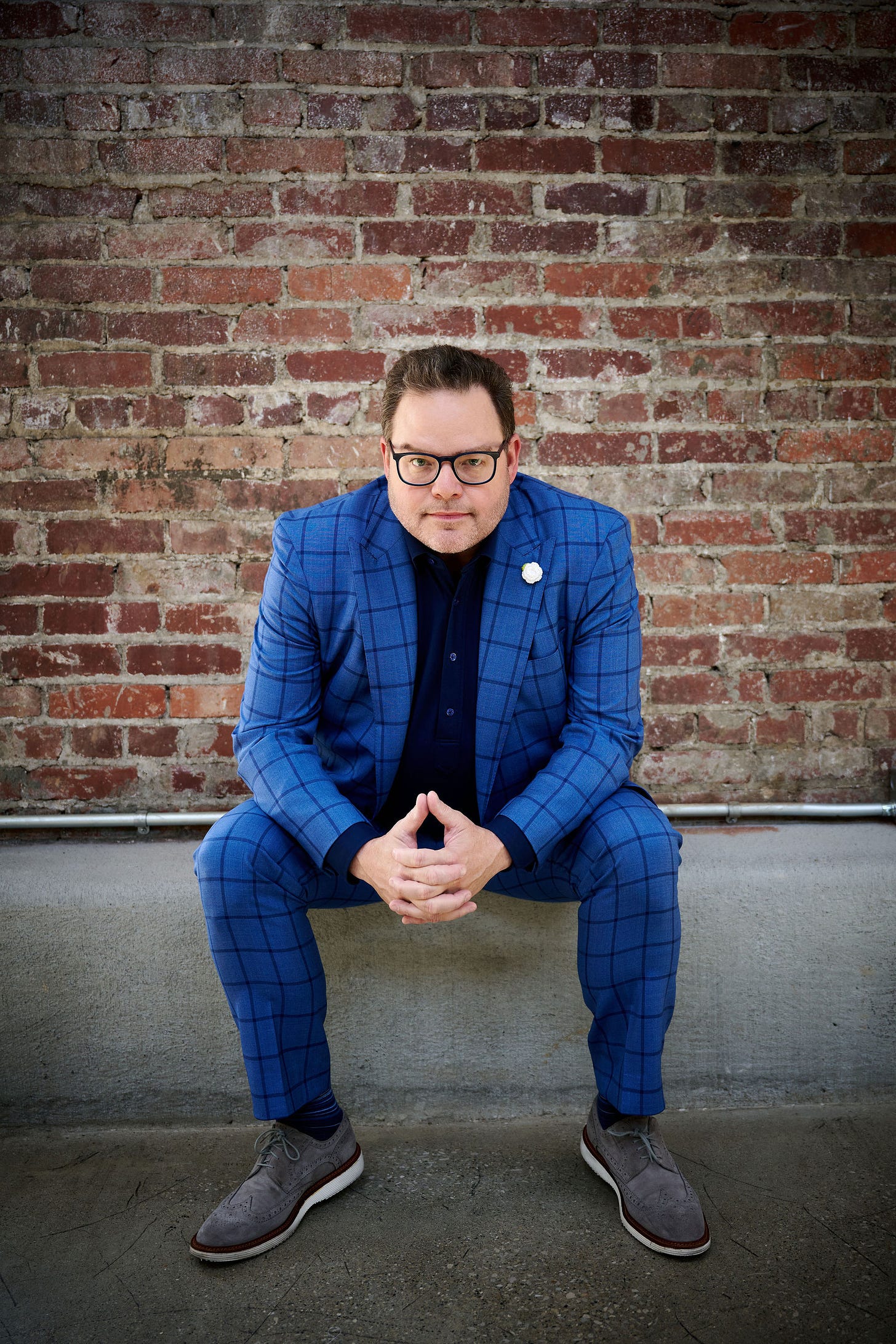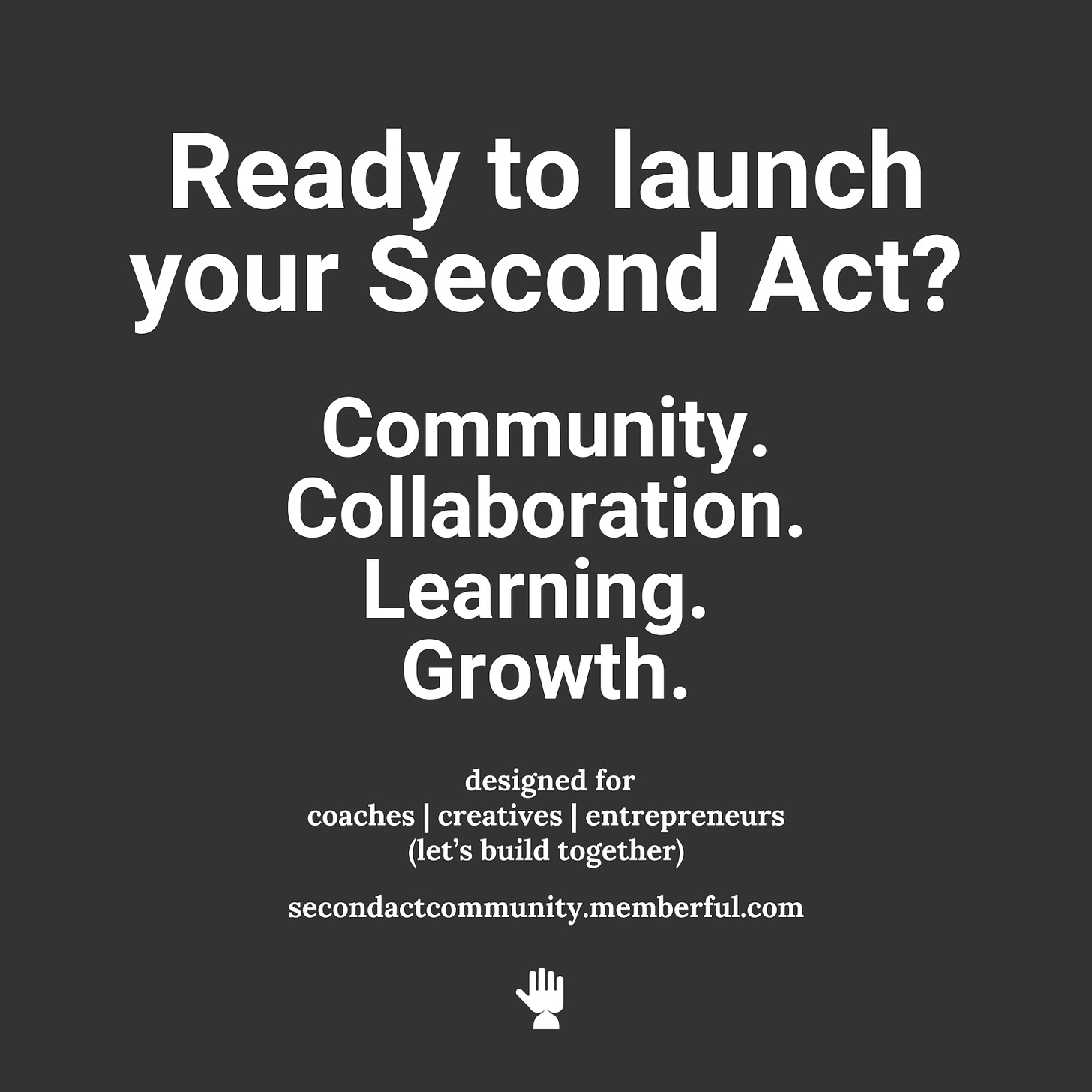From Marketing Guru to Tequila Influencer: Jay Baer's Spirited Second Act
How a health scare and pandemic pivot led a marketing expert to blend his skills with his passion for tequila
Jay Baer is a 25-year veteran in the professional services sector. He’d written seven books, built and sold multiple companies, and was giving keynote speeches all over the world. Then, Covid and a personal health scare forced him to slow down and realize he wasn’t happy. Today, he has a new venture, marrying his marketing skills to a personal passion: tequila.
This is a great interview for anyone considering pivoting to a Second Act, taking the skills they know well, and marrying them to their passion. – Steph and Tom
To kick us off, I’m curious—what did you want to be when you were a kid? Did you always want to be an entrepreneur?
I almost had no choice. I’m a seventh-generation entrepreneur, and my son is an eighth. My family, on my dad’s side, has been self-employed since 1862, straight through. Funny thing, though, I don’t know that I ever had many conversations with my dad or grandfather about entrepreneurship.
Initially, I didn’t think that’s where I’d head. I attended the University of Arizona and, after graduating, worked as a political consultant, then in corporate marketing, then at the first internet company in Arizona, and another tech startup. During this whole time, I always wanted to do my own thing, partly because I was raised in that entrepreneurial culture, but I got pretty good jobs right out of school, so it was like, "Why leave? I’ve got a wife and a baby now … why take the risk?"
Then, my best friend, who was also my brother-in-law, called me one day and said he had brain cancer. He was 30 years old. The next day, I quit my job, and I haven’t worked for anyone since. I realized, "What am I actually scared of here?" If I started my own venture and it didn’t go well, I could always get a job and be well compensated by someone else. It was the nudge I needed to pursue the entrepreneurial path.
Was there a family business at the core of the culture of entrepreneurship?
Yes, for most of the generations. My family is originally from Nebraska, and we started a furniture store in the mid-1800s called Baer’s Furniture, which is still in business today. My great-great-great-grandfather established it, then it passed down through the generations. My dad didn’t run the family business, partly because he didn’t want to live in a small town in Nebraska, and also because he’s colorblind—not ideal for a furniture consultant. Eventually, my grandfather sold it, but it’s still there. I visited last fall, and the store staff thought it was pretty neat that an actual Baer was in the store.
Your marketing company, Convince & Convert, was among the first to define and speak about content marketing. How did you develop the insight that this was where the market was going?
We started as a social media strategy firm, and I wrote my first book about social business and social media strategy, The Now Revolution. But as we progressed, clients began asking, “What does this social media link to? What’s the rest of the story?” This was when social media was largely written content, in the Twitter-dominant world.
We forget now how mind-blowing it was that consumers could interact with brands directly, but once that became the norm, the question was, “What else should we do?” That’s where content marketing came into play. My second book, Utility, was a response to clients asking how they could tell stories digitally beyond 140 characters. Most of our clients were Fortune 1000 brands, so if they didn’t know the answer, nobody did. That’s how we got into content marketing and strategy.
As an entrepreneur, what were your ambitions? Did you see your ventures as lifestyle businesses, or did you want to scale?
It was a bit of both. I’m good at creating businesses from thin air to a certain level, but beyond that, I don’t have the management skills or vision to grow them much further. I learned that early on and was okay with it. My goal was always to grow a business to $3-$4 million dollars. After that, it would plateau. I’ve done that three or four times now.
What did you love to do most?
I’m a teacher at heart. When I sold Mighty Interactive to Off Madison Ave, the plan was to become a marketing professor. But then, in 2008, the market collapsed, and I couldn’t afford to be a teacher, so I started another company, which became Convince & Convert. Whether it’s writing books, giving speeches, or making tequila videos, I’ve always been teaching people. That’s what I really enjoy.
I know many entrepreneurs who are also teachers at heart. Have you found that to be true?
Absolutely. Sometimes people are better at teaching than running the business, which can hold them back. I’ve been fortunate to balance both sides.
How did you push yourself?
Well, the only thing I’ve ever had to sell is convincing someone that I’m more knowledgeable than them at something. That’s a daily challenge because you have to know things they don’t, or demonstrate it in a way that makes sense. You’re only as good as your last conference call, book, speech, or strategy. It’s a constant fire.
How did you define success?
If I could decide what I was going to work on, when I was going to work on it, how much we were going to charge, and who I got to work with, I always sort of felt like that's the pinnacle of success, right?
The second thing is that I'm super proud of all the businesses that well over 20 people who have worked for me have also started their own successful businesses. They had it in them anyway, but I’ve been able to give them enough of a roadmap and support to do their own thing, and then they can pay it forward to the next generation of people.
This is the third interview I’ve done for Generation Next, and each story involves a moment of sickness or death that puts life in perspective. You had a similar moment with your friend—how did that shape your path?
If the story is “author and speaker becomes a tequila influencer,” I had the same story myself. When the pandemic hit, I had to stop traveling—there were no speeches to give, at least not in person, and I was giving 60 to 70 speeches a year, all over the world. It was the first time I hadn’t traveled weekly in 15 years. Once I stopped, I realized I’d been super unhappy for a long time, but I didn’t know it because I was always so busy. Something had to give, so I decided to sell Convince & Convert.
I called a friend who I knew would treat me fairly. Then, not five minutes after we’d agreed to the terms for the sale, my wife and I had just cracked a bottle of wine, and I got a call from my doctor saying I had melanoma and needed surgery immediately. So, within minutes of selling my company, I was dealing with cancer. That was a rough ride, but everything is good now.
What led you to tequila?
I’ve been a tequila fan for a long time. But really, as a teacher, I thought, “What do I know that other people might want to learn about?” I started making a few videos about tequila, just for fun, with no commercial intent. I’d never created any short-form, snackable, consumer-level content so I thought it would be fun to learn. And talking tequila is fun. But because I can’t help myself, it turned into a business. Now, I’m one of the most popular tequila influencers on the planet, with a burgeoning tequila content creation and consulting business.
What does it mean to find an audience for a tequila brand, or any brand, in a crowded market?
There are over 2,000 tequila brands, which presents both opportunities and challenges. It’s crucial to figure out how to differentiate a brand—what’s the story? Is it about how the tequila is made, the quality-to-price ratio, or the flavor profile? Our job is to help brands figure out that narrative and ensure it’s communicated effectively. We also assist with operational challenges, like finding the right distributors or testing label designs. My assistant, Maddie, who also worked at Convince & Convert, recently pointed out that we’ve essentially rebuilt Convince & Convert, but now all the clients are tequila brands. It wasn’t the plan, but that’s where we’ve ended up.
Is this a similar business model, just in a niche?
In many ways, the same business model but focused on a niche. At Convince & Convert, awareness and clients came through books and speeches. Now, it’s through Instagram and TikTok videos. So maybe it’s not a second act—maybe it’s the same act again, but now I talk about booze.
What’s been your biggest challenge with this new venture?
My biggest challenge right now is shelving. I have way too many tequila bottles and not enough shelves. We downsized after the kids graduated, and now the problem is where to store all these bottles.
It sounds like your next business might be shelving units…
It’s funny you say that … tequila bottles are all different shapes and sizes, which creates a lot of challenges for shelving. A tequila-oriented shelving system could definitely be a viable business, but I’m only good at one thing—selling ideas.
More info: https://www.jaybaer.com or https://tequilajaybaer.com
Interested in pursuing your own business dream? Join Generation Next and sister publication Cento at Second Act Community, a virtual community for professionals, including coaches and creatives, who are pivoting from the corporate world to build businesses they love. We’d love to see you there: Second Act Community







Steph- I appreciate Jay's definition of success as defined by choice. I think much of his definition of this might have correlation to freedom as well. Hope you're well this week? Cheers, -Thalia